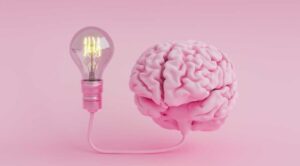Holidays offer an important opportunity to see our family and loved ones, whom we neglect in the hustle and bustle of busy city life. Experts emphasize that spending time with our loved ones by going out of the routine habits of holiday visits positively affects our mental health. In addition, holidays contribute to people coming together emotionally, intellectually, joyfully, discursively and in action. This special period of time increases feelings of love, respect, peace, brotherhood, happiness and sharing, while reducing selfishness, self-interest and separation.
Older generations know and experience that traditional holidays emphasize human values and solidarity. Therefore, we may realize that today we are in greater need of such unifying, loving and tolerant characteristics. Families and parents with this awareness strive to ensure that their children continue the traditions of the holiday and pass them on to future generations. Sharing common values gives us the joy and happiness of being together.
Holidays are moments when being human and being in unity and solidarity as a society are embodied. With this characteristic, holidays reduce selfishness, self-interest, division and disagreement, while increasing feelings of love, respect, peace, brotherhood, happiness and sharing.
Eid is often a time when many different emotions and feelings arise. These can include joy, happiness, excitement, peace, gratitude and unity. Holidays are often associated with positive emotions as they offer the opportunity to come together with loved ones, to share, help and be together. However, in some cases, more complex emotions such as longing, sadness or nostalgia may also arise, especially for those who have lost loved ones during the holidays. To summarize, the emotions felt during Eid may vary depending on everyone’s personal experiences and circumstances.
Eid also reinforces the sense of trust in society. Thanks to the collective feelings, individuals in a community feel safe. Thanks to these feelings, challenging emotions and situations such as anxiety, stress, sadness and rush, which we frequently encounter in daily life, are balanced. As a result, holidays have important biological, psychological and sociological effects.
As Neuromark family, we wish you a happy and healthy Eid with your loved ones.
Reference: Psychologist Merve Altındağ
Yüksel, G. (2011). Kastamonu’da dini bayramları kutlama gelenekleri ve bu geleneklerin insan ilişkilerine etkisi. Akademı̇k Bakiş Dergı̇sı̇, 26, 1-26.,




